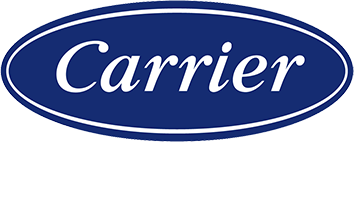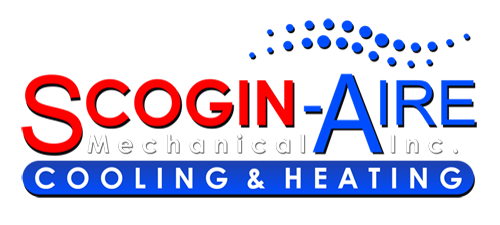How to Maximize Heating Efficiency: Tips to Save on Your Winter Energy Bills in Spring, Texas
January 09, 2025

As winter sets in, homeowners in Spring, Texas, start turning on their heating systems to maintain warmth and comfort. However, heating can be a significant portion of your energy bill, especially if your system is not running efficiently. Fortunately, there are several simple and effective ways to maximize heating efficiency, ultimately saving you money during the colder months.
In this blog, we will guide you through practical tips and tricks to optimize your heating system, improve energy efficiency, and lower your winter energy bills in Spring, Texas.
Understanding Heating Efficiency
Heating efficiency refers to the ability of your heating system to convert energy into heat while minimizing waste. The more efficient your system, the less energy is required to maintain your desired indoor temperature. When heating efficiency is maximized, you spend less on energy bills without sacrificing comfort.
A significant factor contributing to heating efficiency is the type of heating system you have. For instance, heat pumps are highly efficient because they transfer heat rather than generate it from scratch, making them an excellent choice for homeowners looking to reduce energy consumption.
Heat pumps can both heat and cool your home, making them a great investment for year-round efficiency. If you're considering upgrading your heating system, a professional heat pump installation can help reduce energy usage. Learn more about heat pumps and how they can enhance heating efficiency.
Maintain Your Heating System For Optimal Efficiency
Just like any other appliance, your heating system needs regular maintenance to keep it running at peak performance. Without proper care, your system may lose efficiency over time, leading to higher energy bills and even system breakdowns.
Here are some essential maintenance steps that can maximize your system's efficiency:
-
Clean or Replace Filters: Clogged filters obstruct airflow, causing your system to exert more effort to heat your home. Check your air filters regularly (every 1 to 3 months) and replace them if necessary. This simple step can improve efficiency by up to 15%.
-
Inspect Ductwork: Inspecting your ductwork is essential, as leaks can result in significant heat loss. A detailed examination of your ducts, followed by sealing any cracks, guarantees that warm air is directed to the rooms you wish to heat.
-
Tune-Up the Furnace or Heat Pump: Having a professional HVAC technician inspect your system annually can help catch any issues before they become major problems. Regular tune-ups keep everything running smoothly and efficiently.
At Scogin Aire Mechanical, we offer expert heating services to ensure your system operates at its best. Our team of professionals is ready to help with everything from routine maintenance to complex repairs.
Optimize Thermostat Settings for Maximum Comfort and Savings
Your thermostat is one of the easiest and most effective ways to control heating efficiency. By adjusting your thermostat settings, you can ensure your home remains warm without wasting energy.
Here are some tips for using your thermostat efficiently:
-
Lower the Temperature at Night or When Away: When you're sleeping or not home, lower the thermostat by 5-10°F. This can reduce heating costs by as much as 10%.
-
Use a Programmable Thermostat: These thermostats allow you to set different temperatures for different times of the day, ensuring that you're not heating your home when you don't need to. You can program your thermostat to warm the house before you wake up and cool it down after you leave for work.
-
Don’t Overheat Your Home: It may be tempting to crank the heat when it's cold outside, but setting your thermostat too high can waste energy. A temperature of 68°F is generally considered comfortable for most people.
Using these strategies can help you balance comfort and savings. If you need assistance with installing or upgrading your thermostat, check out our Heating Services page for more information.
Upgrade Your Insulation to Keep Heat In
One of the most effective ways to maximize heating efficiency is to ensure that your home is well-insulated. Without proper insulation, warm air escapes through the walls, ceilings, and floors, making it harder to maintain a comfortable temperature indoors.
Consider upgrading insulation in the following areas:
-
Attic Insulation: Heat rises, and without proper insulation in the attic, much of your home's warmth can escape. Insulating your attic properly prevents heat from leaving your home and keeps it comfortable during colder months.
-
Wall Insulation: Many homes, especially older ones, may not have adequate insulation in the walls. Adding insulation in these areas can significantly improve energy efficiency.
-
Floor Insulation: Floors, particularly those above unheated spaces like basements, can allow heat to escape. Insulating floors can ensure that the warmth stays where it's needed.
Proper insulation can reduce the load on your heating system, making it easier and less expensive to maintain warmth. For more guidance on enhancing your home's efficiency, check out our blog page on efficient HVAC installation tips.
Seal Leaks and Gaps Around Windows and Doors
Even if your home is well-insulated, gaps around windows and doors can still let warm air escape. Sealing these leaks is a low-cost, highly effective way to maximize heating efficiency.
Here are some simple ways to seal leaks:
-
Weatherstripping: Add weatherstripping to doors and windows to create an airtight seal. This simple step can prevent drafts and reduce heat loss.
-
Caulking: Use caulk around windows, doors, and any other gaps to keep cold air from entering your home.
-
Insulated Door Sweeps: Install door sweeps at the bottom of exterior doors to prevent cold air from entering and warm air from escaping.
By sealing leaks, you’ll create a more comfortable home and reduce the workload on your heating system. It's one of the most affordable ways to save on your energy bills.
Invest in Energy-Efficient Heating Solutions
If your heating system is old or inefficient, it might be time to consider upgrading to a newer, more energy-efficient model. Modern heating systems, like high-efficiency furnaces and heat pumps, use less energy to produce the same amount of heat, leading to substantial savings over time.
Some energy-efficient options include:
-
High-Efficiency Furnaces: These furnaces are designed to use less fuel to generate heat, offering an efficiency rating of 90% or higher.
-
Heat Pumps: As mentioned earlier, heat pumps transfer heat rather than generate it, making them a more efficient choice for both heating and cooling. They're ideal for climates like Spring, Texas, where winters are relatively mild.
Upgrading to an energy-efficient system might have an upfront cost, but the long-term savings on your energy bills can be significant. For more information on how to upgrade your system, visit our heat pump services page.
Utilize Ceiling Fans Properly in Winter
Ceiling fans are often thought of as a summer-only appliance, but they can actually be very useful during the winter months as well. Running your ceiling fan in reverse (clockwise) helps distribute warm air more evenly throughout the room.
Here’s how it works:
-
Warm Air Circulation: Heat rises, so the warm air naturally collects near the ceiling. By reversing the direction of the fan, you can push the warm air down and distribute it more evenly throughout the room.
-
Reduced Heating Load: By making sure warm air circulates properly, your heating system doesn’t have to work as hard to keep your home warm, which translates into lower energy costs.
Using ceiling fans in winter is a simple and cost-free way to boost heating efficiency.
Regularly Check and Replace Air Filters
Air filters play a crucial role in the efficiency of your heating system. Dirty filters restrict airflow, making it harder for your system to circulate air. This can lead to longer heating cycles and higher energy consumption.
Be sure to check your air filters every 1 to 3 months. If the filter appears dirty, swap it out for a fresh one. A clean filter ensures that air flows freely through the system, which enhances overall heating efficiency.
Contact Scogin-Aire Mechanical to Maximize Your Savings and Comfort This Winter
By implementing the strategies outlined in this blog, you can maximize your heating system’s efficiency and lower your energy bills this winter. However, if you want the professionals to guide you to a winter season that’s comforting and cost-saving, contact us for professional advice, services, or system upgrades. If you’d like to know more about us, visit our website or check out our reviews page to read about how our customers have benefited from our heating services. Allow us to assist in keeping your home cozy and energy-efficient throughout the winter season.








